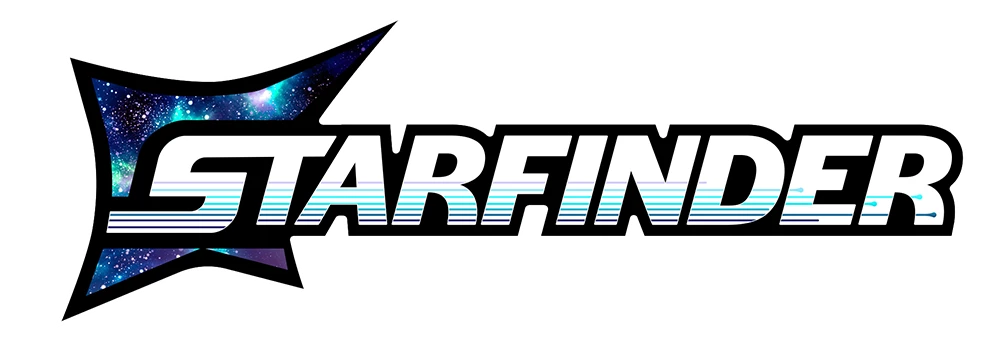Sometimes it's crucial to know how groups of people feel about the PCs. That's where reputation comes into play. The reputation subsystem is a simple way to use Victory Points to determine how the PCs stand with such groups.
Reputation is a mid- to long-term subsystem wherein the PCs accumulate or lose Reputation Points with a particular group of people, such as a guild, a government, a church, or a village. The PCs gain Reputation Points by performing favors for the organization, to a maximum of 50 Reputation Points, and lose Reputation Points by doing disservices, to a minimum of –50 Reputation Points.
Each favor the PCs perform for a group normally grants the PCs Reputation Points with that group.
- Minor favors are simple, basic tasks that don't take too much effort for a PC to perform or much time at the table. Minor favors grant 1 Reputation Point.
- Moderate favors require a significant amount of effort and often take up a session or a noticeable chunk of a single session to complete. Moderate favors grant 2 Reputation Points.
- Major favors are a sizable endeavor, typically an entire quest involving several sessions. Major favors grant 5 Reputation Points.
On the flip side, disservices are a catchall for ways the PCs might make a group angry, whether it's through actual malice and planning on the PCs' part or simply by accident. Unlike favors, disservices don't have as easy a correspondence with in-game time; a quick but particularly egregious action could easily still be a major disservice. Disservices normally lose the PCs Reputation Points.
- Minor disservices could be small but significant missteps, or accumulated slights and inconveniences. Minor disservices take away 1 Reputation Point.
- Moderate disservices are more than just a nuisance or annoyance, generally significantly hindering the group's efforts or violating a fundamental tenet of the group's beliefs in a significant but not egregious way. Moderate disservices take away 2 Reputation Points.
- Major disservices are incredibly antagonistic to a group, usually a single brazen act, such as thwarting a cult's apocalyptic doomsday plan. Major disservices take away at least 5 Reputation Points, or more if they are particularly egregious. They might be so terrible that the PCs immediately lose all their Reputation Points and then lose 5 more Reputation Points.
PCs generally start with a reputation of “ignored” with most groups, as most groups have never heard of them. If they are particularly famous or infamous among related groups, the PCs might start with a different reputation of your choice. The reputation is generalized to the whole group—an individual NPC can hold a different opinion.
Table 3–2: Reputations
| Reputation | Reputation Points | Raised By | Lowered By |
| Revered | 30 to 50 | Major favor | Moderate or major disservice |
| Admired | 15 to 29 | Major favor | Any disservice |
| Liked | 5 to 14 | Moderate or major favor | Any disservice |
| Ignored | –4 to 4 | Any favor | Any disservice |
| Disliked | –5 to –14 | Any favor | Moderate or major disservice |
| Hated | –15 to –29 | Any favor | Major disservice |
| Hunted | –30 to –50 | Moderate or major favor | Major disservice |
The PCs either aren’t on this group’s radar or the group knows about the PCs but is generally ambivalent toward them. This carries no special benefits or detriments.
The PCs have gained this group’s favor. Many members of the group know about the PCs, and those who do are usually friendly to them. At this reputation, only moderate and major favors accrue Reputation Points; it takes more to impress the group further.
The PCs have earned this group’s admiration. The majority of the group knows about the PCs and have an extremely favorable opinion toward them. Many members of the group are helpful toward the PCs, and those who aren’t are friendly. Only major favors accrue Reputation Points.
The group reveres the PCs as heroes and celebrities. Every member has heard of the PCs, is helpful toward them, and would take major risks to assist them. Only major favors accrue Reputation Points, and only moderate or major disservices can reduce them.
The PCs have a poor reputation among members of this group. Many members of the group know about the PCs, and are usually unfriendly to them. At this reputation, only moderate and major disservices reduce Reputation Points.
The PCs have earned this group’s ire. The vast majority of the group knows about the PCs and have an extremely unfavorable opinion toward them. Many members of the group are hostile toward the PCs, and those who aren’t are unfriendly. When presented an easy opportunity to hurt the PCs, the group will jump at the chance. Only major disservices can still reduce Reputation Points.
The group actively hunts the PCs as scapegoats or nemeses, even at significant cost to itself. Every member has heard of the PCs, is hostile toward them, and would take major risks to thwart or destroy them. Only major disservices can still reduce Reputation Points, and only moderate or major favors can increase them.
Using Reputation Points in the background allows you to track the PCs’ status with a variety of groups or factions based on the PCs’ actions and choices. This is especially useful for a sandbox campaign or other structure with numerous possibilities, helping you build a reactive structure and track how PCs are doing with groups they interact with only occasionally. When the point totals don’t fit the story, use common sense. For instance, if the PCs are hunted by the town guard due to a corrupt mayor, but then perform a major quest revealing the mayor’s wrongdoing and saving the town, that might jump them from the worst negative reputation to a much more positive reputation. Similarly, the PCs’ foes could frame them, harming the PCs’ reputation even though they’ve done no disservice.
 Licenses
Sources
Licenses
Sources
 Contact Us
Contributors
Support the Archives
Maximize Menu
Contact Us
Contributors
Support the Archives
Maximize Menu
 Licenses
Sources
Licenses
Sources
 Contact Us
Contributors
Support the Archives
Contact Us
Contributors
Support the Archives









